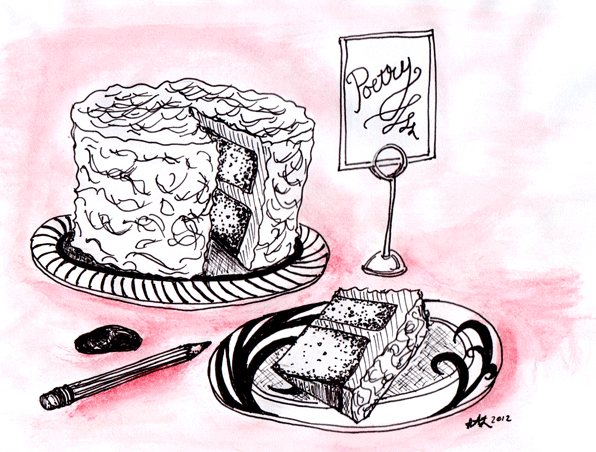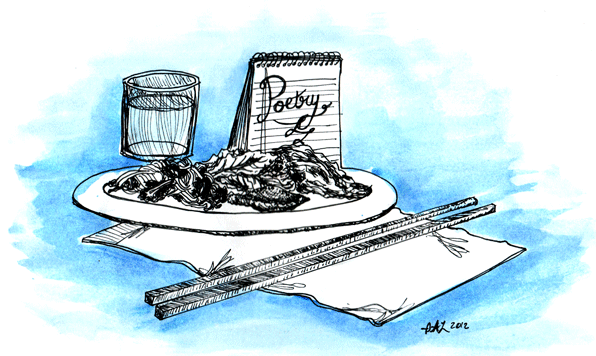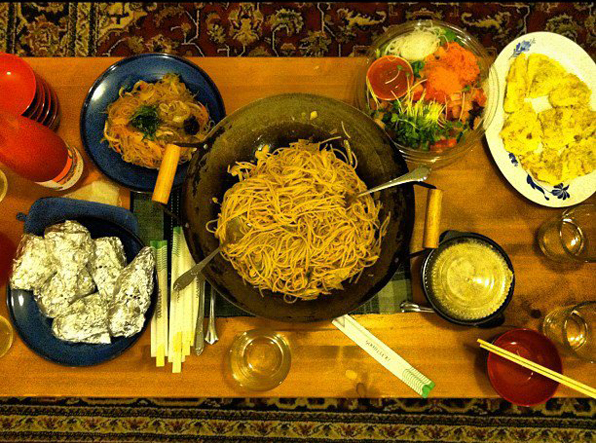
Guest Curated By Neil Aitken
For this installment of “On Poetry Potlucks,” our guest curator Neil has invited Elaine Wang, one of the guests at his very first poetry potluck (and an LR Issue 1 contributor), to reflect upon her experience. In today’s post, Elaine regales us with a tale of cake; rocks and mysterious masseuses; and the solace that she found through the group of sympathetic strangers gathered there.
* * *
There is so much cake.
I am at Neil’s first ever poetry potluck, and I’m mostly wondering how three people are going to eat two full-sized cakes. And these are optimal condition cakes—one is a green tea roll with icing inside and the other gently sandwiches layers of jellied fruit.
I think I ate four pieces of cake that night, and that was just dessert. Neil had made his famous sweet potato dumplings for dinner.
But more on the poetry part and less on the potluck part—after spending some time catching up and getting to know one another, Neil led Ngoc and I through a generative writing exercise designed to find the “heart of the poem” through bringing together seemingly disparate pieces of our lives and finding their points of contact.
I learned that I am obsessed with doors and a rock. Not rocks, a single small, smooth rock. Namely, the scented, wet rock a massage therapist had laid in the hole where my clavicles meet after an almost two and a half hour massage. The massage was only supposed to be an hour and a half, but the massage therapist later commented that he had lost track of time because he had been so immersed in working on my body because it was in one of the best conditions of his clients (at this point of my life, I had been dancing more regularly in jazz and ballet). I had felt it, too. The whole session felt like a weird, non-sexual but completely physical communion. For the next two weeks I was wracked with the following questions: Did he just leave rocks in everyone’s necks? Was this a secret come-on, since it’s so taboo in professional massage therapist/client relations? If I went back to try and find him (I didn’t know his name, and I got the massage through a Groupon), would they throw me out and would I be tagged on some sort of creeper list?
Continue reading “On Poetry Potlucks, Part III – Guest’s Perspective (Elaine Wang)”


